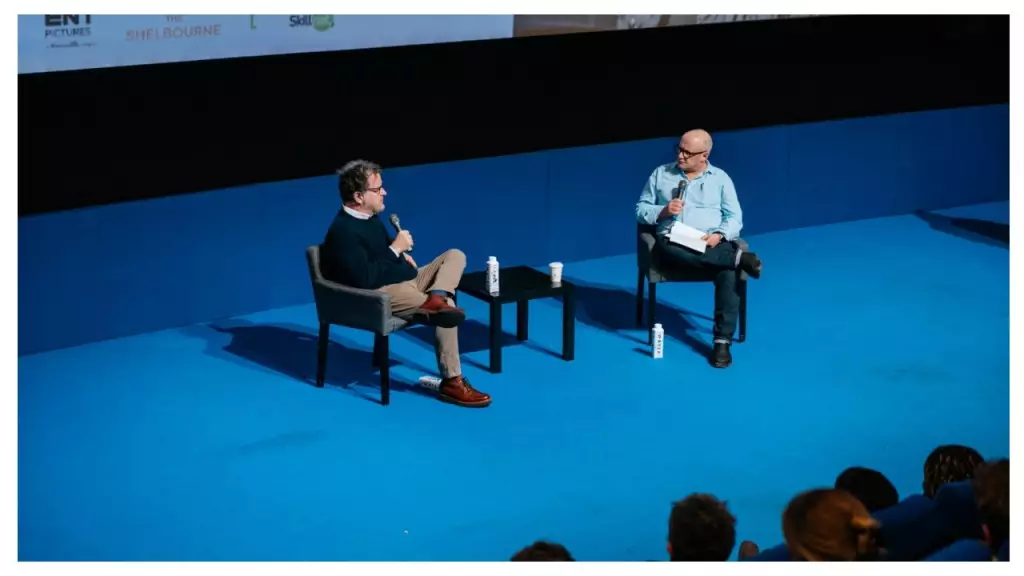Kenneth Lonergan, acclaimed for films like *Manchester by the Sea* and *You Can Count on Me*, recently shared his journey as a screenwriter during a keynote address at Dublin’s Storyhouse festival. Focusing on the struggles and triumphs of maintaining creative sovereignty in the fiercely competitive world of cinema, Lonergan’s experience offers critical insights for aspiring writers. Despite rewriting scripts for others, he emphasizes that his personal creativity thrives only when he has total artistic authority over the projects he undertakes. This demand for creative independence is vital; without it, a filmmaker’s vision can easily be compromised by external pressures.
Lonergan’s candid admission about needing “protectors” in Hollywood highlights the pervasive challenges filmmakers face, particularly when it comes to ensuring their artistic choices are respected throughout the production process. He recounts an instance where, despite having safeguards in place, he faced significant interference during the making of his second film. Such anecdotes reveal the harsh reality of an industry often skewed toward commercialization, where filmmakers who lack the necessary clout can find their masterpieces diluted by studio mandates or ill-fitting casting decisions.
Nostalgia for Cinema’s Golden Age
When prompted about contemporary filmmaking, Lonergan expressed a deep-seated longing for the boldness of the 1970s film landscape. This period, characterized by an explosion of innovative storytelling and unfiltered character development, starkly contrasts with what Lonergan perceives as a decline in today’s movie quality. He articulates a poignant critique of the current state of cinema, lamenting that films nowadays often feel formulaic, with predictable narrative arcs that prioritize commercial viability over artistic exploration.
Lonergan’s yearning for the seamless complexity of storytelling prevalent in earlier decades showcases his belief that audiences are capable of engaging with more nuanced characters and themes. He argues that the breeze of Hollywood winds has shifted towards safer, more palatable narratives, enforcing a sanitization of creative expression that inevitably dulls the sharp edges of storytelling. This pivot to oversimplified messaging can dilute emotional depth, which in turn, diverts audiences from the rich, thought-provoking material that can foster genuine connection and introspection.
The Importance of Originality
At the heart of Lonergan’s message is a resounding affirmation of originality. He asserts that a writer’s individual voice is the most distinctive contribution they can make to the film industry. In an age where borrowing tropes and recycling storylines seem to reign supreme, protecting one’s unique perspective is more crucial than ever. This principle is not just vital for the individual artist but is also essential for the health of the cinematic landscape as a whole.
Through his three films—*You Can Count on Me*, *Margaret*, and *Manchester by the Sea*—Lonergan illustrates how embracing personal experiences can lead to resonant storytelling. His willingness to deviate from conventional scripts, as exemplified by the improvised opening sequence in *Manchester by the Sea*, underscores the importance of spontaneity in artistic creation. Recognizing and trusting instincts during the filmmaking process can often lead to moments of profound authenticity that scripted moments simply cannot replicate.
Procrastination as a Path to Productivity
In a whimsical observation, Lonergan describes his method of working on multiple projects simultaneously as a “productive form of procrastination.” This unconventional approach suggests that allowing various ideas to collide can create a fertile ground for creativity. Rather than viewing procrastination as an obstacle, he reframes it as a catalyst for inspiration and exploration. By embracing the chaos of overlapping projects, he thrives in a dynamic creative environment where ideas can evolve organically.
This perspective on procrastination invites upcoming writers to reconsider their own processes. Instead of striving for rigid time management and linear productivity, they might find value in the fluidity of juggling various creative endeavors. This approach could lead to unexpected breakthroughs and a richer, more diversified artistic output.
Kenneth Lonergan’s remarks at the Storyhouse festival provide much-needed discourse on the challenges and joys of independent filmmaking. By advocating for creative control, preserving originality, and allowing room for spontaneity, he serves as a powerful beacon for future storytellers navigating the complexities of the film industry. His insights encourage an unwavering commitment to one’s voice and vision, emphasizing that true artistry often flourishes in environments that celebrate and respect individual expression.

Leave a Reply